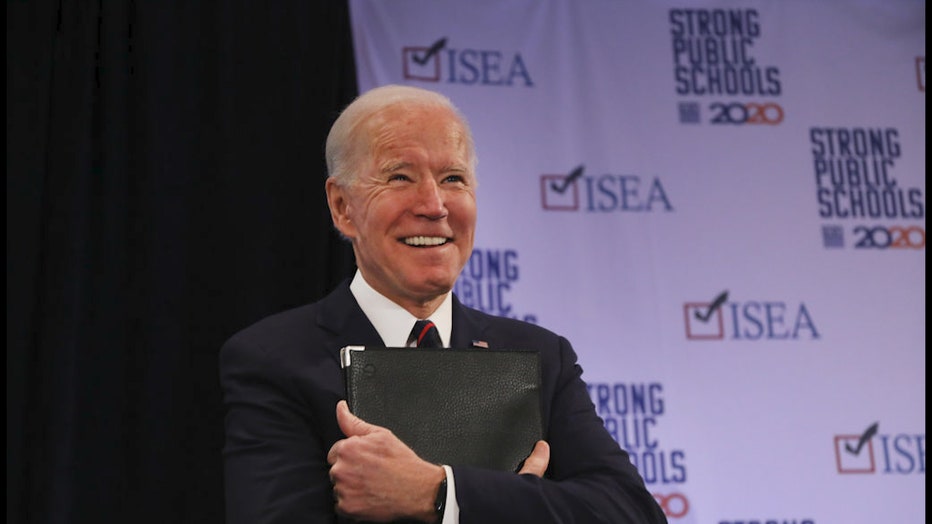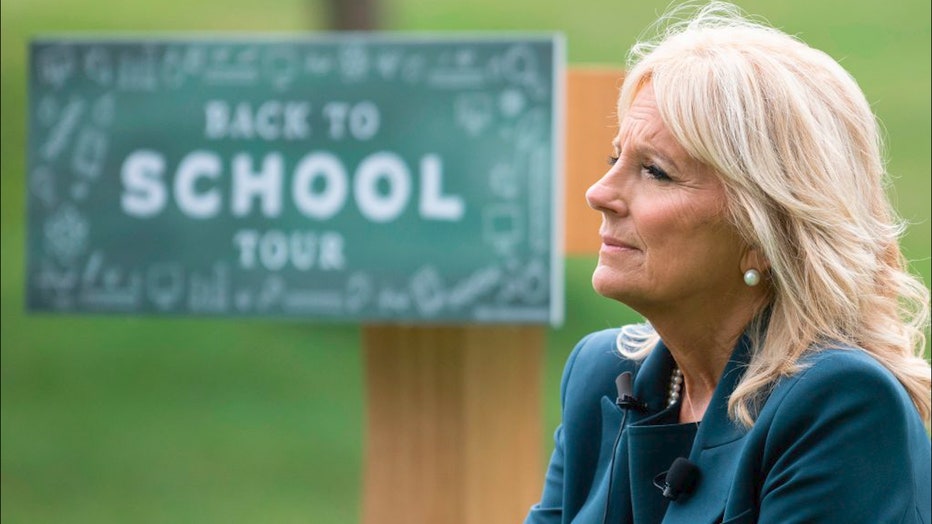Student loan payment pause extended through Sept. 30 by Biden executive orders
WASHINGTON - The U.S. Department of Education will extend the pause on federal student loan payments and interest rates will remain at 0% after an executive order by President Joe Biden.
"Too many Americans are struggling to pay for basic necessities and to provide for their families. They should not be forced to choose between paying their student loans and putting food on the table," according to a statement from White House.
The extension is set to expire on Sept. 30, 2021. The Federal Student Aid website states that it will continue to update any new dates as time goes on.

FILE - Democratic presidential candidate, former U.S. Vice President Joe Biden appears at the Iowa State Educators Association (ISEA) forum to speak at the Sheraton West Des Moines Hotel on Jan. 18, 2020 in West Des Moines, Iowa. (Spencer Platt/Getty Images)
RELATED: Biden to sign 10 pandemic-related executive orders on Thursday
The student loan payment pause extension is one of several that have been issued as the pandemic rages in the U.S. and around the world, with many students resorting to online learning or being kicked out of dorms with nowhere to go. Others who have finished college but are still paying down their student loan debt have lost jobs.
At the onset of the pandemic in March, Congress enacted the Coronavirus Aid, Relief, and Economic Security Act (CARES Act) which allowed student loan payments to be halted until Sept. 30, 2020. As cases surged and there seemed to be no end to the pandemic in the near future, the pause was extended once again until Dec. 31, 2020, and then again until Jan. 31, 2021.
Being married to an educator himself, Biden put education at the forefront of his campaign, saying he would "support our educators by giving them the pay and dignity they deserve" via competitive wage and benefits, according to his campaign website.

FILE - Jill Biden, the wife of Democratic presidential candidate Joe Biden, attends a Back to School Tour at Shortlidge Academy in Wilmington, Delaware, on Sept. 1, 2020.
He even pledged to make community college tuition-free, while offering a similar benefit for students from families with working-class incomes or lower to attend state schools as well.
In his first days as commander in chief, Biden hit the ground running, signing more than a dozen executive orders on Inauguration Day, mere hours after being sworn into office.
The executive actions were an attempt to essentially rewind the last four years of federal policies with striking speed. Only two recent presidents signed executive actions on their first day in office — and each signed just one. But Biden, facing the debilitating coronavirus pandemic, is intent on demonstrating a sense of urgency.
The president signed another 10 executive orders Thursday, specifically related to the ongoing COVID-19 pandemic. With the orders, Biden initiated a national COVID-19 strategy to ramp up vaccinations and testing, reopen schools and businesses and increase the use of masks — including a requirement that Americans mask up for travel.
The Associated Press and Kelly Taylor Hayes contributed to this report.

